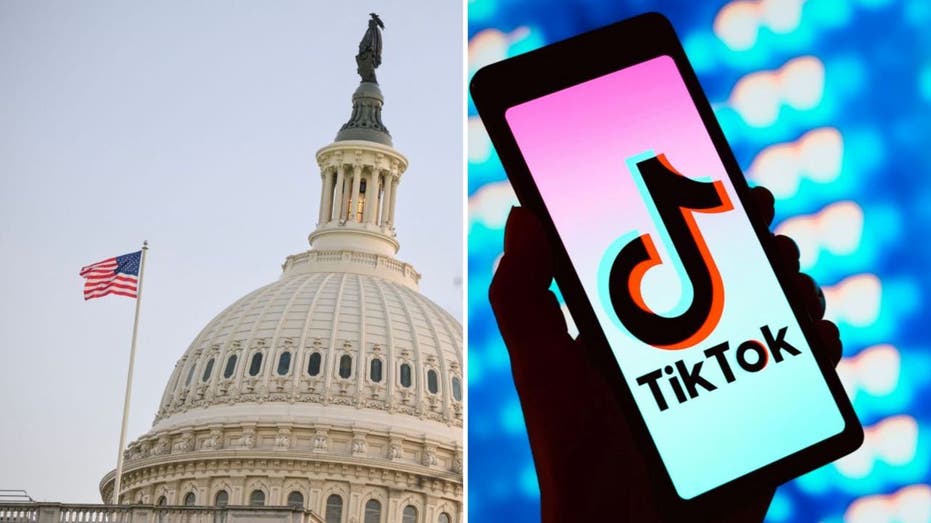A bill paving the way to a possible TikTok ban in the U.S. passed the House of Representatives on Saturday, as part of a legislative package addressing critical national security concerns with China, Russia and Iran.
It passed overwhelmingly in a 360 to 58 vote.
Another high-profile component of the measure is the Rebuilding Economic Prosperity and Opportunity (REPO) for Ukrainians Act, which would allow the U.S. government to liquidate seized Russian assets and then give those funds to Ukraine.
House Foreign Affairs Committee Chairman Michael McCaul, R-Texas, who led the bill – called the 21st Century Peace Through Strength Act – argued it was critical because the U.S. was at a similar "inflection point" as in 1939, when the globe was on the cusp of World War II. He asked fellow lawmakers: "Are you Churchill or Chamberlain?"

The House voted to pave the way for a potential TikTok ban as part of a larger national security package Saturday (Getty Images)
"The fall of Afghanistan sent a powerfully dangerous message to our adversaries that America was weak. Almost immediately after, the Russian Federation began moving towards Ukraine. And once [Chinese Communist Party Chairman Xi Jinping] met with [Russian President Vladimir Putin] at the Olympics and cemented their unholy alliance, they invaded,' McCaul said.
"Chairman Xi has become more aggressive in the Pacific. And mark my words – Xi is watching what happens in Ukraine to determine whether he invades Taiwan in the Pacific. Then the Ayatollah raised his ugly head in the Middle East. And last Saturday the world watched as Iran – for the first time in history – invaded Israel, sending 300 missiles and drones to kill innocent Israelis. These dictators including North Korea are all tied together. They are all tied together."
In addition to the aforementioned provisions the legislation also carries sanctions against Palestinian-based terror groups like Hamas, Palestinian Islamic Jihad, Al-Asqa Martyr’s Brigade, and the Lion’s Den. It also levies sanctions on ports and refineries that receive and process Iranian oil.
But the bill to force Beijing-backed company Bytedance to divest from TikTok is perhaps the most well-known aspect for many Americans, and if the app winds up banned, could have the most immediate effect on millions of people in the U.S. who use it daily.
If passed by the Senate and signed into law by President Biden, Bytedance would be forced to sell TikTok to either an American company or a company headquartered in a country not hostile to the U.S. within 12 months or face being banned in U.S. app stores.

A split of the US Capitol Dome and an illustration of the TikTok app. (Capitol: Photo by MANDEL NGAN/AFP via Getty Images | TikTok: Photo Illustration by Rafael Henrique/SOPA Images/LightRocket via Getty Images / Getty Images)
The initial iteration of the bill, which gave Bytedance six months to divest, passed the House earlier this year but faced uncertain odds in the Senate.
"This app is a spy balloon in Americans' phones. It is a modern day Trojan horse of the CCP used to surveil and exploit Americans' personal information," McCaul said of TikTok.
TikTok users launched a furious pushback effort against the first iteration of the TikTok bill. The company is likely to launch an equally fierce opposition effort before the Senate is expected to consider the bill on Tuesday.
The bill's passage is a major victory for Speaker Mike Johnson, R-La., who is holding the Saturday vote as part of a wider push to pass a foreign aid plan that also includes roughly $95 billion in aid for Ukraine, Israel and the Indo-Pacific.

